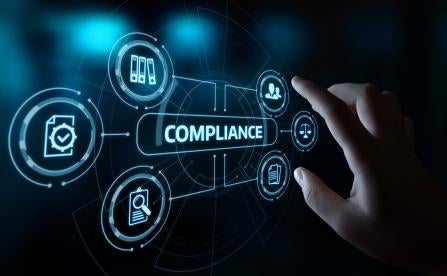On March 7, 2024, US Deputy Attorney General, Lisa O. Monaco announced the development of a new “DOJ-run whistleblower rewards program” during her speech at the American Bar Association’s 39th National Institute on White Collar Crime.[1] The announcement signals “a 90-day sprint to develop and implement a pilot program, with a formal start date later this year.” And Acting Assistant Attorney General Nicole Argentieri provided further clarification on March 8 at the same conference, noting that “[w]e believe that we can make the greatest impact by offering financial incentives to disclose misconduct in areas where no such incentives currently exist.”
DAG Monaco explained that since the creation of Dodd-Frank, other whistleblower programs at the SEC and the CFTC, and similar ones at IRS and FinCEN, have “proven indispensable.” However, these programs were limited in scope and did not address “the full range of corporate and financial misconduct that the Department prosecutes.”
DOJ’s whistleblower rewards pilot program is meant to fill in those gaps. “The premise is simple: if an individual helps DOJ discover significant corporate or financial misconduct – otherwise unknown to us – then the individual could qualify to receive a portion of the resulting forfeiture.”
Some of the basic guardrails for the new program will include offering rewards (i) only to those who submit truthful information not already known to the government and who are not involved in the criminal activity itself; (ii) after all victims have been properly compensated; and (iii) only in cases where there is no existing financial disclosure incentive (including qui tam or another federal whistleblower program).
DAG Monaco also sent a message directly to whistleblowers, encouraging them to come forward with information about violations of any federal law, and particularly:
- Criminal abuses of the U.S. financial system;
- Foreign corruption cases outside the jurisdiction of the SEC, including FCPA violations by non-issuers and violations of the recently enacted Foreign Extortion Prevention Act; and
- Domestic corruption cases, especially involving illegal corporate payments to government officials.
To be eligible for a reward, whistleblowers must be the first to come forward with information and must provide information to the Department that it did not already know. While it remains to be seen how the program will actually be structured and work in practice, Acting AAG Argentieri further clarified that the Money Laundering and Asset Recovery Section will take the lead in designing it and there likely will be a monetary threshold in order to ensure that resources are focused on the most important cases.[2] She noted earlier in her remarks that “[f]or example, we anticipate that the program could prove especially useful in developing foreign corruption cases that are outside the jurisdiction of the SEC, including FCPA violations by non-issuers.”
Disruptive Technology Risks
During her speech, DAG Monaco also announced that moving forward the Criminal Division will also assess disruptive technology risks, including risks associated with Artificial Intelligence (“AI”), and incorporate those risks into its guidance on Evaluation of Corporate Compliance Programs. Stated simply, “prosecutors will assess a company’s ability to manage AI-related risks as part of its overall compliance efforts.”
She added, “[w]here AI is deliberately misused to make a white-collar crime significantly more serious, our prosecutors will be seeking stiffer sentences — for individual and corporate defendants alike.”
DAG Monaco’s announcement, along with her recent speech at Oxford University last month, make clear that the Department is focused on AI and is alert to its risks.[3]
The Department’s willingness to respond to these risks by addressing the rise of AI through its existing sentencing guidelines and corporate enforcement programs will likely encourage companies to re-assess and re-evaluate their technology risks.
[1] Deputy Attorney General Lisa Monaco Delivers Keynote Remarks at the American Bar Association’s 39th National Institute on White Collar Crime (Mar. 7, 2024), https://www.justice.gov/opa/speech/deputy-attorney-general-lisa-monaco-delivers-keynote-remarks-american-bar-associations
[2] Acting Assistant Attorney General Nicole M. Argentieri Delivers Keynote Speech at the American Bar Association’s 39th National Institute on White Collar Crime (Mar. 8, 2024), https://www.justice.gov/opa/speech/acting-assistant-attorney-general-nicole-m-argentieri-delivers-keynote-speech-american
[3] Lisa O. Monaco, Deputy Attorney General of the U.S. Department of Justice, Remarks at the University of Oxford on the Promise and Peril of AI (Feb. 14, 2024), https://www.justice.gov/opa/speech/deputy-attorney-general-lisa-o-monaco-delivers-remarks-university-oxford-promise-and





 i
i


